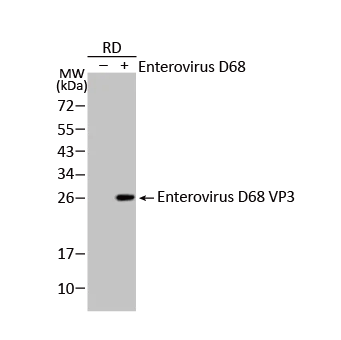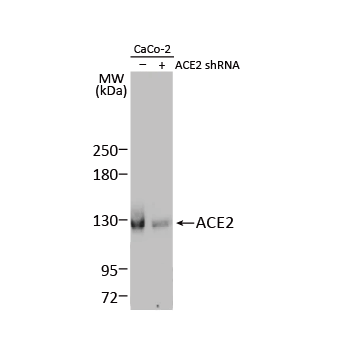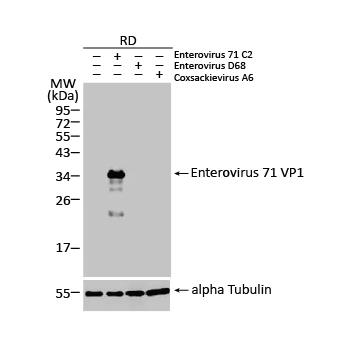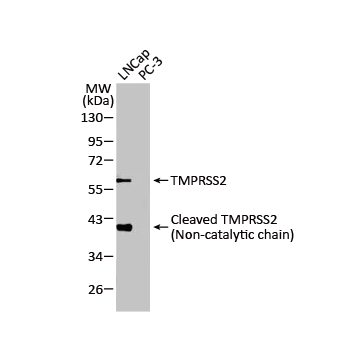MFSD6 is an Entry Receptor and Potential Therapeutic Target for EV-D68
 |
Worldwide vaccination efforts have largely eliminated poliovirus as a major cause of severe complications such as acute flaccid myelitis (AFM), a rare, polio-like neurological condition causing sudden muscle weakness and paralysis observed primarily in children. Researchers are now focusing on other enterovirus infections that can lead to AFM, with enterovirus D68 (EV-D68) being recognized as the pathogen responsible for many recent epidemic AFM outbreaks.
Although EV-D68 is a leading cause of AFM, its mechanism of cell entry remains unclear. A recent Nature paper by Varanese et al. addressed this by performing genome-wide CRISPR screens to identify host factors essential for EV-D68 infection (1). The researchers discovered that the multipass membrane protein MFSD6 is a critical entry receptor for EV-D68. Structural and functional analyses showed MFSD6 binds EV-D68 via its third extracellular loop. Furthermore, a soluble MFSD6-based decoy receptor blocked infection in cells and was protective in mouse models, highlighting MFSD6 as a promising antiviral target against EV-D68 infection.
GeneTex offers outstanding antibodies for infectious disease research, including the EV-D68 VP1 antibody (GTX132313), EV-D68 VP1 recombinant antibody (GTX637898) and EV-D68 VP3 antibody [GT1665] (GTX633706) cited in this study. The authors also used GeneTex's Goat Anti-Mouse IgG antibody (HRP) (GTX213111-01) and Goat Anti-Rabbit IgG antibody (HRP) (GTX213110-01). Please explore our comprehensive antibody catalogs for infectious disease or visit the GeneTex website.
|
|
|
|
||||||||||||||||
Reference:
| 1. Nature. 2025 Mar 25. doi: 10.1038/s41586-025-08908-0. |



